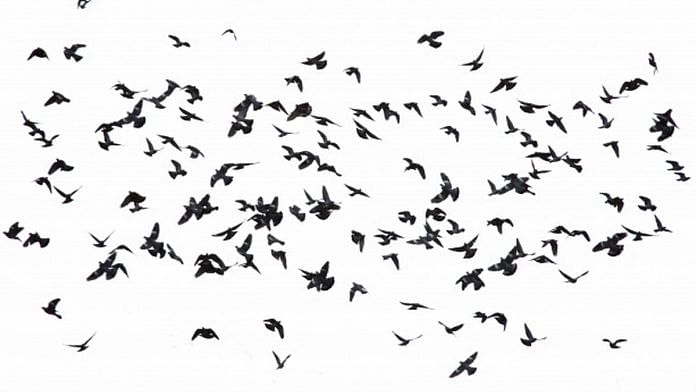New Delhi: Noise produced by human activities is putting the survival of over a 100 different species worldwide at risk, warns a study conducted by researchers at Queen’s University Belfast.
The study, published in Biology Letters Wednesday, found that noise pollution affects the behaviour and physiology of a wide range of species, including birds, fish, mammals and reptilians.
The researchers analysed over a 100 species, which were divided into seven groups: Amphibians, arthropods, birds, fish, mammals, molluscs and reptiles.
“The study found clear evidence that noise pollution affects all of the seven groups of species and that the different groups did not differ in their response to noise,” said Hansjoerg Kunc, co-author of the study, in a statement.
Also read: Human noises create havoc for birds, even prevent them from reproducing, says new study
Noise threatens the survival of many species
The research highlighted that anthropogenic noise, or noise produced by human activities, could severely impact the population of several species.
Many amphibians, birds, insects and mammals produce acoustic signals to communicate with each other. These signals are used to attract mates, warn family members of potential threats such as predators etc.
According to the researchers, noise pollution blocks such acoustic signals, effectively obstructing communication. Noise also makes hunting more challenging for animals like bats and owls, who locate their prey through acoustic signals.
Also read: Air pollution increases risk of brain cancer by 10 per cent, says new Canadian study
In the aquatic world, fish larvae find their home by following the sound emitted by reefs. Increased noise pollution in the sea — primarily due to ships — may cause fish larvae to choose less suitable reefs, reducing their chances of survival.
Noise pollution can also impact the natural migration patterns of animals. Many birds will avoid noise-polluted areas and this will affect where they choose to live and raise their young.
These changes can harm the health of the ecosystem as each species forms an integral part in maintaining the balance within a particular ecosystem.
“This large-scale quantitative study provides significant evidence that noise pollution must be considered as a serious form of man-made environmental change and pollution, illustrating how it affects so many aquatic and terrestrial species,” Kunc said.
“Noise must be considered as a global pollutant and we need to develop strategies to protect animals from noise for their livelihoods,” he added.
Also read: Pollution, climate change, malnutrition will affect our kids for life, Lancet report says



